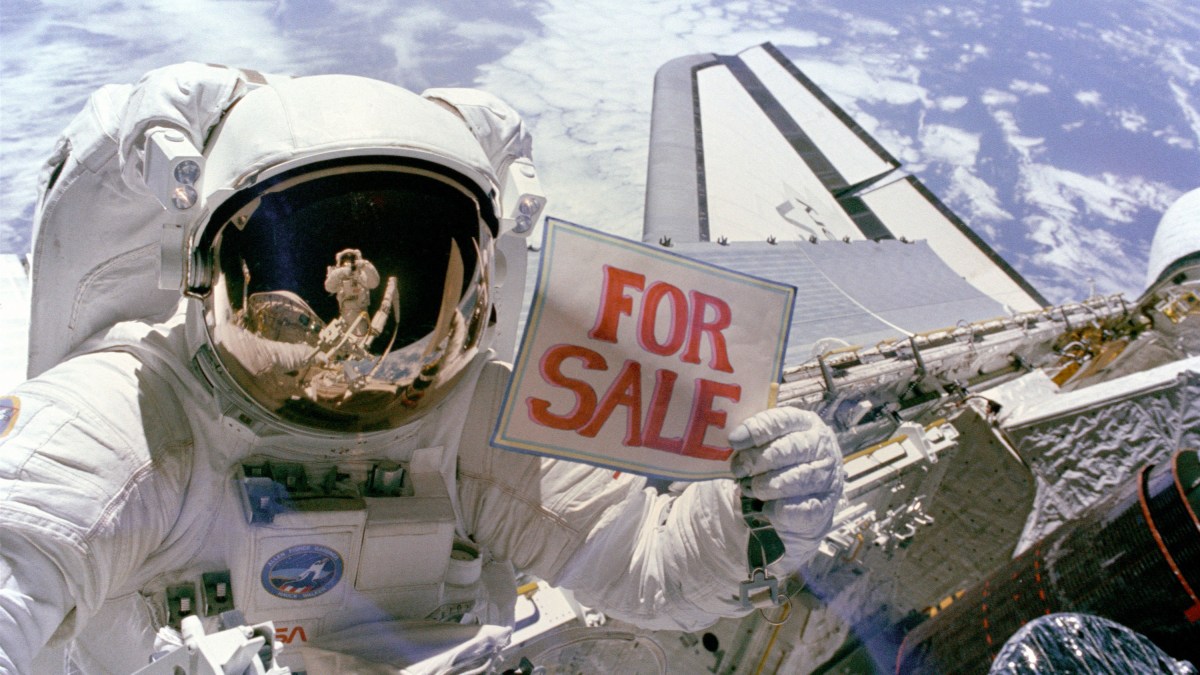When you have made two outstanding documentary series on a theme, Once Upon a Time in Iraq and Once Upon a Time in Northern Ireland, what do you do for your third act? The director James Bluemel clearly decided that the only way is up.
His new series, Once Upon a Time in Space (BBC2), may have moved the camera lens skywards but it remains exceptional television. Over four episodes it is surprisingly moving and as much about humanity as it is about space. As with the other two oral history series, Bluemel looks at his subject, and the space race between the US and the USSR (and now with China), through the prism of politics, power, people and war. “Whoever rules space rules the world,” an interviewee says.
Via a sparkling cast of talking heads it also examines how global diplomacy and co-operation has flourished in the galaxy, the International Space Station requiring various nations working in one “room” together as equals, a sort of orbiting civility pod.
The excellent second episode features the British-born astronaut Michael Foale and the Russian cosmonaut Aleksander “Sasha” Lazutkin, who were in the Mir space station together where Foale’s Russian became fluent over the months. The friendship between Foale, Lazutkin and their colleague Vasily Tsibliyev, the team working together to avert a potential disaster on Mir, is a series highlight. Lazutkin says that in space all are equal regardless of where they are from. He remembers Foale as “sunny, warm, open and kind”.
The first episode’s main focus was not on the moon landing but on later events including the “world’s first astronaut mother”, as Anna Fisher was billed rather sexistly, a doctor who became a mission scientist on the space shuttle Discovery in 1984. She took a fair bit of flak for risking her life when she had a baby, criticism notably not levelled at male astronauts who also had children. Astronauts were told at that time there was a 1 in 25 chance of the shuttle flight failing and if that bothered them, to walk away. Plenty would take their place.
• Read more TV reviews, guides about what to watch and interviews
Her husband at the time, Bill, was recruited to the same programme later and their daughter Kristin, now the space and defence correspondent for CNN, provided an insight into being the child of two astronauts and rewatching the copious videos they made with her in case one of them died (they never went into space together). That danger was spelt out horrifically in 1986 with the space shuttle Challenger disaster which killed all seven crew members aboard including Ron McNair, the second black American in space. His brother spoke poignantly about how proud the family were of him and his huge intellect. They had gone “from slavery to space in four generations”.
It is a timely series because we are on the verge of a new space race. Where once only trained astronauts went, we have billionaires and celebrities queueing for seats. The experts with their huge brains and wisdom agreed that the world needs to explore space collectively to benefit the entire human race, not just individual leaders’ own nations.
Our world is “too small and too fragile to withstand these political battles”, said a former Russian cosmonaut, as conflicts rage around the planet. Ginger Kerrick, a former flight director at Nasa and the first non-astronaut capcom (capsule communicator), said that it would be a tragedy if countries never worked together in space for the good of all again. “For a little while I lived in a world that didn’t operate that way,” she said. “And it was beautiful.”
★★★★★
All episodes are available on iPlayer
Love TV? Discover the best shows on Netflix, the best Prime Video TV shows, the best Disney+ shows, the best Apple TV+ shows, the best shows on BBC iPlayer, the best shows on Sky and Now, the best shows on ITVX, the best shows on Channel 4 streaming, the best shows on Paramount+ and our favourite hidden gem TV shows. Don’t forget to check our critics’ choices to what to watch this week, and browse our comprehensive TV guide

